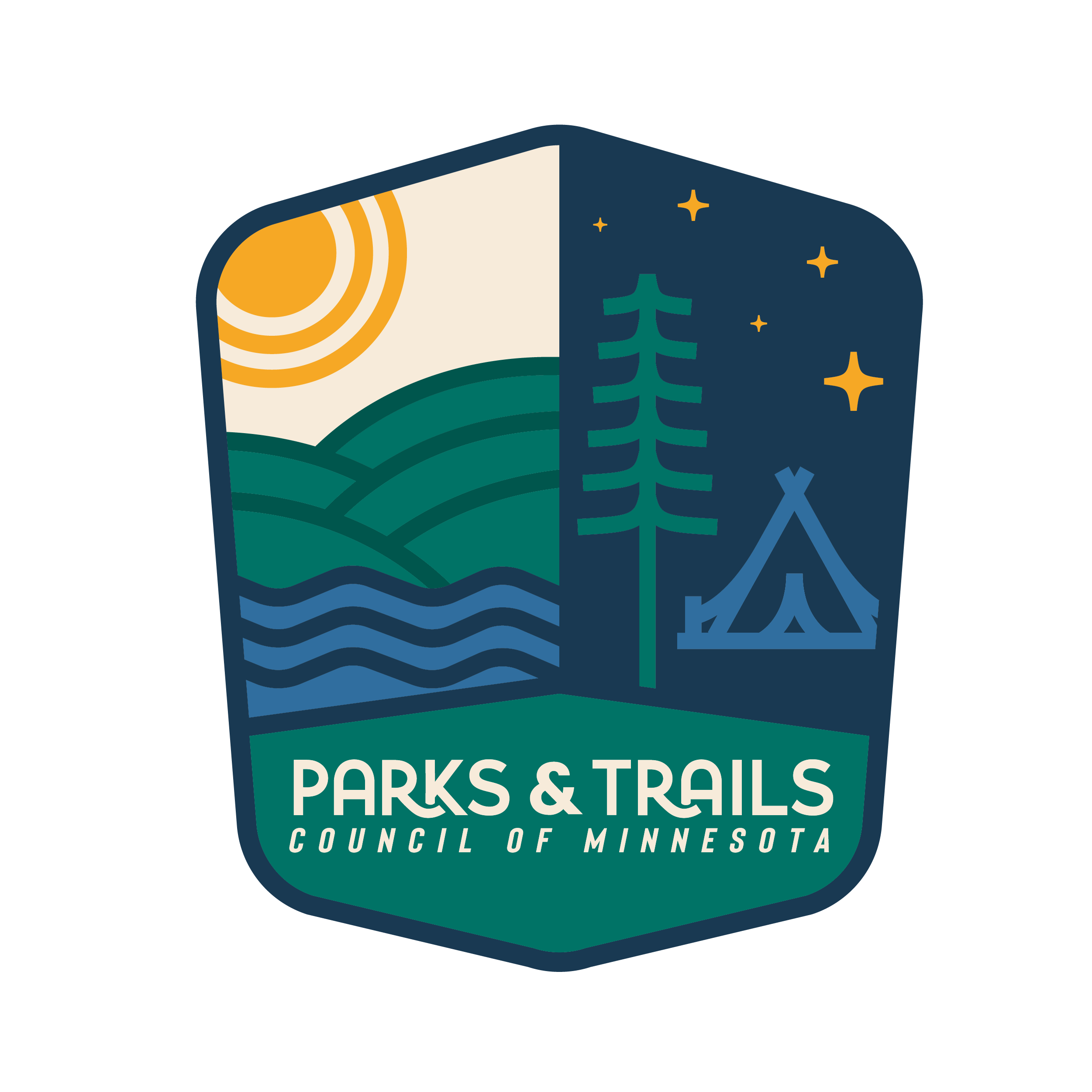
P&TC Grant Programs for Friends Groups
Youth Engagement Grants
This grant program is designed to support friends groups in implementing youth education- and engagement-focused projects in state parks and trails.
Grant Program Overview
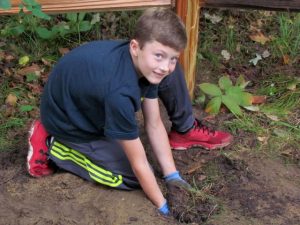
Photo by Dave Sauer
This grant program is designed to support Friends Groups in implementing youth education- and engagement-focused projects in state parks and trails.
Parks and trails serve an important role in engaging kids and students in nature. Studies have shown that children who don’t build a connection to the natural world when they are young are far less likely to be environmental stewards when they are adults. Therefore, getting kids to visit a park or trail and participate in outdoor activities is an important way to connect youth with nature and help to build the next generation of environmental stewards.
Friends Groups are uniquely positioned to assist in these efforts thanks to their commitment to stewardship of parks and trails, their working relationships with the land management agency and the community at large, and their efforts to actively connect people to their public lands. Engaging youth through learning and appreciating the outdoors is vital for Minnesota’s public lands to thrive. These values align with the mission of the Parks & Trails Council.
In 2019, this grant program will award up to $10,000 in small grants of $500 or $1,000 to qualifying Friends Groups with appropriate projects.
Applicant Eligibility
Round 2 is open to groups that were not funded during round 1.
Friends group
Applicants must be a friends group. See the P&TC definition of friends groups.
Membership
Applicants must be a member of Parks & Trails Council of Minnesota. Annual membership starts at $35/year.
State system
Applicants must be a friends group that directly supports a Minnesota State Park or State Trail.
Timeline - Round 2
| Date | Activity |
| August 27, 2019 | Application materials due |
| September 27, 2019 | P&TC issues award decisions |
| October 1, 2019 | Project implementation period begins |
| June 30, 2020 | Project implementation period ends |
| July 15, 2020 | Final report due |
Timeline - Round 1
| Date | Activity |
| May 31, 2019 | Application materials due |
| June 21, 2019 | P&TC issues award decisions |
| July 1, 2019 | Project implementation period begins |
| June 30, 2020 | Project implementation period ends |
| July 15, 2020 | Final report due |
Project Details
Each project shall focus on engaging and educating youth at a state park or state trail. These projects are intended to complement existing interpretive activities. This grant opportunity will not fund existing projects or programs, but rather supplemental initiatives.
Examples:
- Securing transportation for kids/students to the park/trail for interpretive activities
- Offsetting costs of speaker or program fees
- Engaging students in pre- and post-field trip activities
- Creating new interpretive activities or expanding existing interpretive activities
The friends group is expected to take the lead on planning and implementation of the project. For example, depending on the project, the friends group will initiate contact with school groups, arrange transportation, secure speakers, and attend/lead the group at an event. Parks & Trails Council recognizes that friends groups have different strengths, and the project examples listed above may or may not fit into the skills and capacity of any particular friends group.
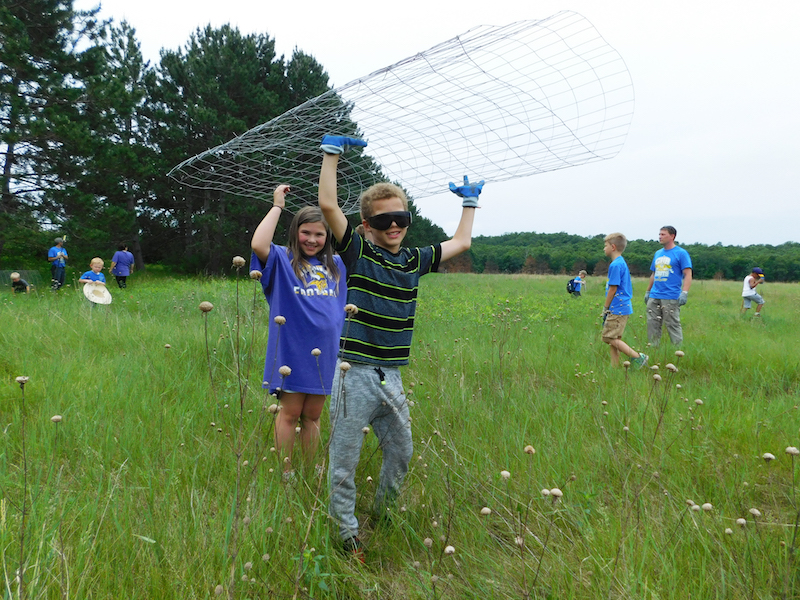
Criteria:
- Project must include educational activities, such as water quality, raptors and bird watching, plants and animals, maple syruping, weather and seasons, watersheds, prairies and forests, etc.
- Recreational activities may also be included, as long as there is an educational component, such as fishing with water quality, hiking with plant or tree identification, snowshoeing to find animal tracks, etc.
- For this grant program, youth is defined as kids in grades K-12. Project may engage school classes, after-school programs, youth groups, church groups, etc. that are made up of kids in grades K-12.
- Project should ideally have an emphasis of engaging with youth underrepresented in park and trail visitation.
- Project should help cultivate relationships with schools or other youth-serving organizations.
- Project must demonstrate how it complements educational initiatives that already exist at the park or trail.
- Project should align with the friends group’s mission.
Partners
During the application process, the friends group shall work closely with their DNR representative to identify and develop a project scope, ensuring the project complements existing initiatives and supports the overall educational mission of the park or trail. After mutually agreeing upon a desired project, the DNR representative shall provide a letter of project approval while the friends group drafts and submits the application. If the friends group secures the grant, the DNR will continue to serve as a resource as the friends group carries out the project.
Parks & Trails Council will serve as the grant issuer. P&TC will remain available and engaged as needed through the grant planning and implementation process. This project serves as an opportunity for friends groups and P&TC to strengthen their working relationship for future collaboration. The main contact is Ashley Pethan, Friends Group Coordinator (apethan@parksandtrails.org or 651-726-2457).
Depending on the project, friends groups will need to cultivate relationships with schools or other youth-serving organizations in order to implement the project.
Budget and Financial Accounting Procedures
Selected grant recipients will be awarded either $500 or $1,000 to complete their specified project. In the application, grant applicants must indicate the amount they are requesting.
The supporting budget (template provided) will include a line-item breakdown for the project. Applicants are encouraged to work with friends members and agency staff in developing the budget.
Eligible Expenses
- Transportation: bus or other transportation costs
- Contract fees: speaker or program fees
- Project materials: supplies or materials for activities
Ineligible Expenses
- Materials not used directly for this project
- DNR or P&TC staff time
- Infrastructure (i.e. signs)
Distribution
The grant funds will be issued to the friends group in one of three ways. Regardless of method, the money will be issued at the beginning of the project implementation period.
- If the friends group is not a fiscal client of P&TC and has its own checking account, P&TC will issue a check for the total grant amount made out to the friends group.
- If the friends group is a fiscal client of P&TC, P&TC will transfer the money directly into the group’s fiscal client financial account.
- If the friends group is not a fiscal client of P&TC and does not have its own checking account, P&TC may issue a debit card pre-loaded with the total grant amount to the friends group.
Friends groups should create a monitoring practice to track their expenses to ensure the project stays within budget—this includes saving receipts and invoices to document expenditures. Information about how the funds were used will need to be reported on the final report.
More details about the financial process will be shared with the grant recipients at a later time.
Match
While a financial match is not required, careful consideration will be given to projects that include a financial match of any amount.
Reporting
Grant recipients shall submit a final report to describe the process, challenges and successes, and impact of the project. A template—in a question and answer format—for the report will be issued to the selected grant recipients at the time of award notification.
Report content
- Measurable data: number of students engaged, volunteer hours contributed, number of activities developed, etc.
- Narrative: descriptions of the activities, quotes from volunteers or speakers, lessons learned, etc.
- Photo/video documentation: group shots, candid pictures or video, pictures of the activities created, etc.
- Financial information: how the grant money was actually used.
Application Process
Selection Criteria
Projects will be selected on a number of criteria, including, but not limited to, the following:
- Friends group demonstrates capacity to implement such a project.
- Project plan is compelling and thorough.
- Project complements existing agency educational/interpretive activities and does supplant an existing initiative.
- Special consideration will be given to projects that engage with a population of youth underrepresented in park and trail visitation.
- Project highlights achievable tasks along a reasonable timeline.
- Detailed budget meets the project’s criteria.
- Special consideration will be given to projects that include a financial match.
- Project establishes clear methods of collaboration among partners.
- Project demonstrates short- and long-term positive impacts on the youth, friends group, and park or trail.
Application Documents
Submission
Before submitting, if you have any questions about your project idea, financial plan, or other items, please connect with the Friends Group Coordinator, Ashley Pethan, to discuss (651-726-2457).
Please submit the Application, Budget, and Letter of Project Approval to the Parks & Trails Council by May 21, 2019. These documents can be submitted via email to friends@parksandtrails.org. Accommodations can be made for different methods of submission, if needed. Please reach out if your group is experiencing any difficulties with the file formats or submitting the documents.
Grant Recipient Documents
Habitat Restoration Grants
This grant program is designed to support friends groups in implementing habitat restoration projects in state parks.
Grant Program Overview
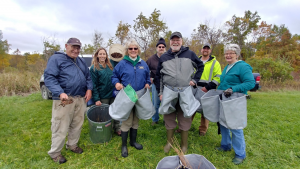
Parks & Trails Council of Minnesota, in partnership with the Minnesota DNR, is proud to offer a grant program designed to engage friends groups in restoration projects in state parks.
Friends groups are uniquely positioned to assist in these efforts thanks to the commitment and working relationships they have with state parks and the individuals and businesses in the community. Deepening these community partnerships is vital for Minnesota’s public lands to thrive and aligns with the mission of Parks & Trails Council.
This grant program, which was made possible by the Henry S. Crosby Foundation, will award up to $25,000 in small grants of $3,000-$5,000 in 2019 to qualifying friends groups. This grant program already awarded $25,000 of grant funding in 2018.
Applicant Eligibility
This grant program was available only to friends groups of state parks that were invited to apply.
Timeline (Year 2)
| Date | Activity |
| February 15, 2019 | Application materials due |
| March 15, 2019 | P&TC issues award decisions |
| April 1, 2019 | Project implementation period begins |
| June 28, 2019 | Interim report due |
| November 30, 2019 | Project implementation period ends |
| December 20, 2019 | Final report and volunteer log due |
Project Details
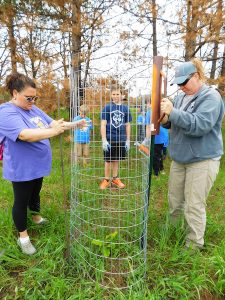 Each project will focus on habitat restoration critical to Minnesota state parks, e.g., tree planting/forest restoration, seed collection and prairie restoration, invasive species control, and/or trail restoration.
Each project will focus on habitat restoration critical to Minnesota state parks, e.g., tree planting/forest restoration, seed collection and prairie restoration, invasive species control, and/or trail restoration.
The DNR has identified potential projects within specific state parks that would bolster existing management efforts while capitalizing on the opportunity the grant presents.
Partners
Parks & Trails Council will serve as the grant issuer. P&TC will remain available and engaged, as needed, through the grant planning and implementation process. Where possible, P&TC may attend meetings/events or conduct a site visit during the grant period. This project serves as an opportunity for friends groups and P&TC to strengthen their working relationship for future collaborations.
The Department of Natural Resources will be involved in all projects, on an overall level as well as on an individual project level. DNR will guide project selection, scope, and scale. DNR will support planning and implementation and provide expertise.
Volunteers from the friends group and the larger community will play an essential role in the project. Volunteers from the friends group will facilitate the planning, implementation, and reporting phases of the project. Community member volunteers—families, scout groups, business teams, etc.—will especially be needed during the implementation phase of the project. An effective precedent for having enough volunteers is working with a partner (i.e. Anderson Windows or a local business, Girl Scouts, high school sports team, etc.) to build a core volunteer team at an event, while also opening up the volunteer opportunity to all friends group membership. Volunteer hours should be tracked throughout the whole project. A volunteer hours tracking template will be issued to selected grant recipients and shall be submitted at the completion of the project with the final report.
Budget and Financial Accounting Procedures
Selected grant recipients will be awarded between $3,000-$5,000 to complete their specified project. Additionally, recipients are expected to secure a 10% match—i.e. if granted $4,000, the match equals $400—which can come from one or more external sources as cash and/or in-kind donations. Matching funds or in-kind donations can come from local businesses, a special donation drive, a partner organization, or other strategy.
In-kind donations need documentation that indicates the dollar value of the donation. Examples of in-kind donations include supplying food or beverages for an event, providing printing/copying services, etc.
In the application, grant applicants must indicate the funding amount they are requesting, between $3,000-$5,000. The supporting budget (template provided) will include a line-item breakdown for the project, with anticipated costs equaling the requested funding amount plus the matching funds. Applicants are encouraged to work with the park manager and DNR staff in developing the budget. Depending on the applications received, selected grant recipients may be awarded their requested amount partially or in full.
Eligible Expenses
- Project materials: seeds, tree cages, herbicide, saplings, etc.
- Tools: shovels, herbicide applicators, gloves, etc.
- Event related expenses: food, beverages, marketing materials,
- Contract work: work that needs special equipment, expertise, etc.
Ineligible Expenses
- Materials or tools not used directly for this restoration project
- Speaker or facilitator fees
- DNR or P&TC staff time
- Signs or benches
- Physical infrastructure that is not directly used for habitat restoration
Distribution
The grant funds will be issued to the friends group in one of three ways. Regardless of method, the money will be issued at the beginning of the project implementation period.
- If the friends group has its own checking account, P&TC will issue a check for the total grant amount made out to the friends group.
- If the friends group is a fiscal client of P&TC, P&TC may transfer the money directly into the group’s fiscal client financial account.
- If the friends group does not have its own checking account, P&TC may issue a debit card pre-loaded with the total grant amount to the Friends Group.
Friends groups should create a monitoring practice to track their expenses to ensure the project stays within budget—this includes saving receipts and invoices to document expenditures. Information about how the funds were used will need to be reported on the final report.
More details about the financial process will be shared with the grant recipients at a later time.
Reporting
We ask that grant recipients submit reports to describe project status, completion, success, and impact. Templates—in a question and answer format—for these reports will be issued to the selected grant recipients at the time of award notification.
Report types
- Interim report: This update will be submitted in mid-summer, providing a snapshot of how far the project has come and what is still planned. A financial snapshot of funds spent and what remains shall be included.
- Final report: This report will encompass the entire project’s successes, lessons, and impact. Additionally, a financial snapshot of how funds were spent shall be included.
- Volunteer Log: This log will be submitted with the final report. The log totals the whole project’s volunteer hours.
Report content
- Measurable data: # of trees planted, acres of prairie restored, miles of trail rehabilitated, # of volunteers engaged, money spent so far, etc.
- Narrative: description of events, quotes from volunteers, lessons learned, etc.
- Photo/video documentation: before and after images, candid video of the restoration process, group shot of all the volunteers at an event, etc.
